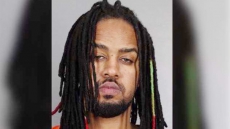BRAMPTON, Ont. — A Toronto-area man waging a legal battle to keep his 27-year-old daughter on life support after she was declared brain dead says he never had the chance to tell her doctors about her religious beliefs.
Stanley Stewart acknowledged Friday that he never raised religious objections to brain death in speaking with doctors or in a series of affidavits he filed with the court in his fight to have his daughter's death certificate revoked.
But Stewart told a Brampton, Ont., court he knows McKitty believed a person is alive as long as their heart still beats because that's what he taught her growing up.
The family's lawyer argues declaring McKitty dead based on neurological criteria contravenes her religious beliefs and therefore amounts to discrimination.
The lawyer representing her doctor, meanwhile, says the family only recently brought up the issue of religion after initially arguing McKitty simply did not meet the criteria for brain death.
Court has heard McKitty was admitted to hospital in mid-September after overdosing on drugs and was declared brain dead days later after her condition worsened and she stopped breathing on her own.
Her family obtained an injunction to keep her on a respirator and conduct more medical tests while it contests that decision.
The judge overseeing the case recently denied the family's bid to record McKitty's movements for 72 hours, saying there was no medical or scientific evidence to show such a test would be helpful.
The family had sought to film McKitty because they believed it would better allow doctors to determine if her movements were spinal reflexes or something more.
Three Toronto-area doctors, including the one who declared McKitty brain dead, have told the court the movements should not be interpreted as signs of life.
A California neurologist submitted an affidavit saying that while he could not say with certainty the movements were reflexes, other tests conducted suggested they likely were.





